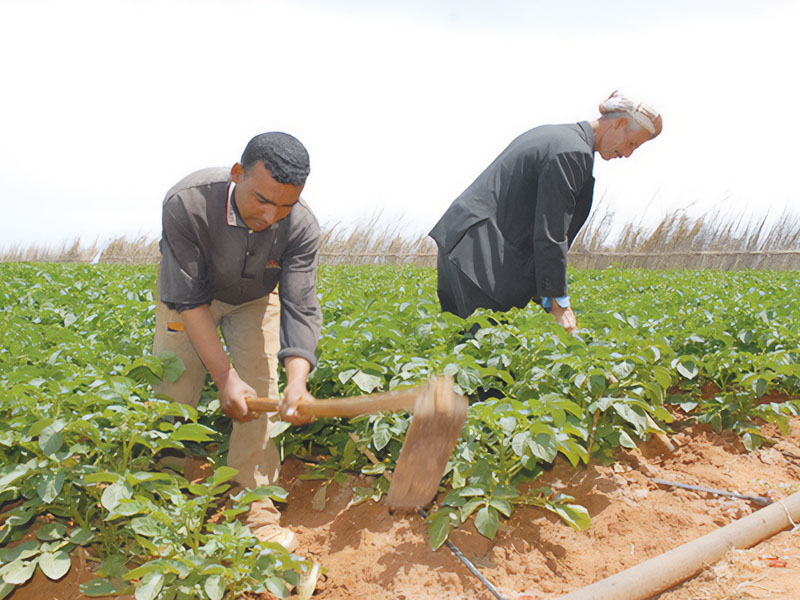Awashir, good omens and Alawlah: A field study of the connotation of agricultural activities in Tébessa, Algeria
Issue 40

By Ibrahim bin Arafa
Rituals, practices and celebrations are part of folk beliefs and cultural heritage. The rituals function as a means of communication with metaphysical forces, and the celebrations held in different seasons are a means of giving thanks for an abundant harvest. These include rituals performed to bestow good omens on neighbours and relatives.
These rituals, which are passed down from generation to generation, are less prevalent due to several factors. In this study, I endeavour to describe and explain these practices.
The study of rituals and their symbols helps us understand what preoccupies the minds of the members of a society. It is a rich field that helps to reveal what is created by people’s imaginations and it helps us understand the symbols associated with local events and practices.
These rituals provide fertile ground for ethnological and anthropological study and analysis. The rituals and local practices are all categorised as ‘sacred’ (which is known in Arab countries in general and in Algeria in particular as the Awashir). They are usually accompanied by other cultural practices within and outside the family. These include circumcisions, marriages, funerals, celebrations of the Prophet Muhammad's birth, fasting days in the month of Shaaban, visits to a shrine to receive blessings from a sheikh, and other folk celebrations associated with agriculture.
Other practices include the Hadhra dance in some local communities, which is performed to expel the jinns and evil spirits, especially on the advent of the holy month of Ramadan. During Ramadan, the devils are chained up because prayer is more powerful. This belief is so common that people in many Arab countries distribute alms and use traditional medicine to protect themselves from jinns and evil spirits.
This is done according to a specific timetable, and these practices, whether rituals or celebrations, are performed throughout the year to uphold a treaty with supernatural and natural forces. People believe that performing these rituals will keep them safe.
In this study, I will try to connect two topics of research - philosophy and anthropology - and I will attempt to study the relationship between time and folk culture as reflected in practices, rituals and beliefs.


































































